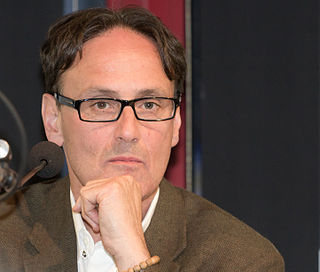A Quote by Naveen Jain
Many of the problems of poverty and need are really problems of physical infrastructure: not enough hospitals, too few schools, insufficient roads, bridges, and a lack of tools. This is what makes traditional philanthropy so daunting. You could build a thousand new hospitals in some parts of the world and barely make a difference.
Related Quotes
Too many politicians seem to reach for 'infrastructure' as the default answer to investment, as if roads and bridges were the answer to everything. Even the IMF and the World Bank seem to mainly offer infrastructure spending as an alternative to austerity, although they are right to focus on the need for investment.
We certainly would resolve the problems of the charities that are working in areas where they can do the most good. So if you consider that the U.S. foreign aid budget is 30 billion, yes, we could make a major contribution to reducing global poverty, start to deal much better with some of the other big environmental problems that the world faces. So I think we could solve a lot of problems.
We know the potentiality of Nigeria and the talent and the resources and to see it having no effect on the lives of the people, on the infrastructure, the roads, the hospitals, the schools, seeing no effect of these talents, these recourses is very frustrating. But it is the result of the damage that was done to the country, especially during the various military regimes.
The quality of health care in Germany is not as good as people sometimes believe it to be. We have problems with chronic diseases. The German system allows too many hospitals and specialists to treat chronic diseases. We do not have enough volume in many institutions to deliver good quality, and we do have fairly strict separations ... between primary physicians, office specialists and hospital specialists. But I think the quality problems can be solved in the next couple of years, and we have made major progress in diabetes, coronary artery disease and pulmonary disease care.
Technology sometimes gets a bad rap because of certain consequences that it's had on the environment and unforeseen problems, but we shouldn't use it as an excuse to reject our tools; rather, we should decide that we need to make better tools to solve the problems caused by the initial tools in a progressive wave of innovation.


































